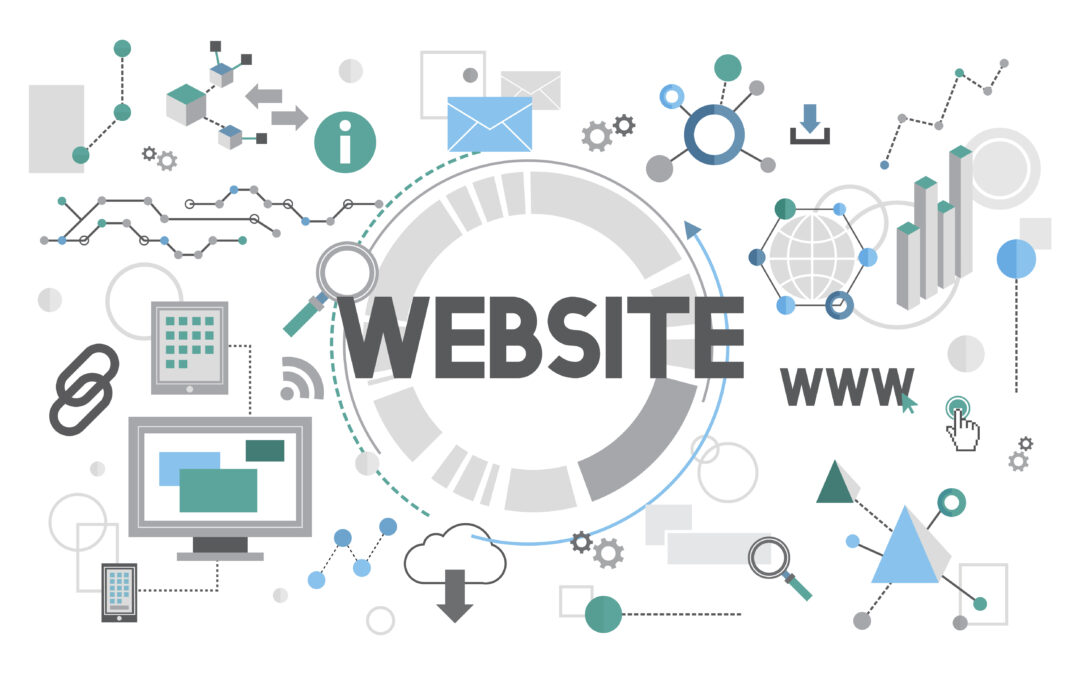
by admin | Aug 1, 2023 | CHAT GPT, Open AI
As of my last update in September 2021, new AI systems can raise various copyright law issues. Let’s discuss some of the key concerns and potential solutions:
Training Data and Copyright Infringement:
Training Data and Copyright Infringement: AI systems often require extensive datasets to be trained effectively. If these datasets include copyrighted material, using them without proper authorization from the copyright owners could lead to copyright infringement.
Solution:
Companies and developers should ensure that they have the necessary rights or licenses to use copyrighted data in their AI training. This may involve obtaining explicit permission from copyright holders or using publicly available, open-source, or properly licensed data.
AI systems can produce creative works like art, music, or text. The question of copyright ownership arises when an AI system generates content that may resemble copyrighted works or uses copyrighted elements to create new content.
Solution:
The issue of copyright ownership for AI-generated content is a complex and evolving area of law. Some countries have debated granting AI systems legal personhood or considering the AI creator as the copyright holder. Until there is clear legislation, developers and users should clarify the ownership and usage rights of AI-generated content through explicit agreements or licenses.
Fair Use and AI:
Fair use is a legal doctrine that allows limited use of copyrighted material without permission for purposes such as criticism, commentary, news reporting, education, or research. However, applying fair use to AI-generated content can be challenging due to the automated nature of AI systems.
Solution:
Developers should be cautious about using copyrighted material in AI-generated content, even if they believe it falls under fair use. Obtaining permission or licenses when using copyrighted material is the safest approach.
AI in Content Moderation:
Some platforms use AI systems to automatically detect and remove copyrighted content uploaded by users. However, AI systems might not always accurately determine fair use or other exceptions, leading to potential content removal mistakes.
Solution:
Content platforms should implement transparent and robust appeals processes to allow users to challenge automated takedowns. Additionally, fine-tuning AI models to recognize fair use and other exceptions can help reduce erroneous content removal.
AI-Enabled Plagiarism:
AI systems can be misused to automatically create content by combining and paraphrasing existing copyrighted works, leading to plagiarism issues.
Solution:
Content platforms and educational institutions should invest in plagiarism detection systems that can identify AI-generated plagiarism. Educating content creators about plagiarism and copyright law is also crucial.
Overall, the intersection of AI and copyright law remains a complex and evolving legal area. Developers, content creators, and companies should stay informed about copyright regulations, consult legal experts when necessary, and implement best practices to minimize copyright-related risks and ensure compliance. Please note that the legal landscape may have evolved since my last update in 2021, so it’s always best to consult up-to-date legal sources and professionals for the latest information.

by admin | Jul 24, 2023 | Digital Marketing, Social Media
Social media presence has become increasingly necessary in modern life due to its pervasive impact on various aspects of our personal and professional spheres. Social media platforms have revolutionized the way we communicate, share information, and connect with others. Here are some reasons why social media presence is considered vital in modern life:
- Communication and Networking: Social media platforms provide instant communication channels, allowing people to connect with friends, family, colleagues, and even strangers from all around the world. It fosters networking opportunities, enabling individuals to build and maintain relationships effortlessly.
- Information Sharing and Awareness: Social media serves as a hub for news, trends, and updates on various subjects. It is a powerful tool for spreading information rapidly, creating awareness about social issues, and mobilizing support for various causes.
- Personal Branding and Professional Growth: Social media allows individuals to showcase their skills, expertise, and talents, creating a personal brand. This branding can be beneficial for professional growth, career opportunities, and personal development.
- Marketing and Business Growth: For businesses, social media presence is now a fundamental aspect of marketing strategies. Companies can reach a vast audience, engage with potential customers, and promote products and services efficiently through social media platforms.
- Community Building: Social media enables the formation of online communities based on shared interests, hobbies, or affiliations. These communities offer a sense of belonging, support, and a platform to exchange ideas and experiences.
- Access to Global Information and Perspectives: Social media breaks down geographic barriers and provides access to diverse perspectives and cultural experiences from around the world. It fosters global understanding and empathy.
- Entertainment and Content Consumption: Social media platforms offer a plethora of entertainment options, from videos and photos to articles and memes. It has become a primary source of entertainment for many individuals.
- Real-Time Communication: Social media allows real-time interaction with individuals or groups, making it a valuable tool for staying informed during emergencies, natural disasters, or other time-sensitive situations.
- Personal Expression and Creativity: Social media provides a platform for individuals to express themselves creatively, whether through visual arts, writing, music, or other forms of content creation.
- Influence and Advocacy: Social media has empowered individuals and groups to advocate for social causes, raising awareness about important issues and driving change through collective action.
Despite the numerous benefits, social media presence also comes with certain challenges, such as privacy concerns, the potential for misinformation, cyberbullying, and the addictive nature of these platforms. Striking a balance between the positive aspects and mindful usage is essential to make the most out of social media without compromising mental well-being and personal boundaries.
In conclusion, social media presence is undeniably necessary in modern life due to its transformative impact on communication, information sharing, networking, personal branding, and business growth. However, it is crucial to use social media mindfully and responsibly to harness its potential benefits while mitigating its potential drawbacks.

by admin | Jul 24, 2023 | Digital Marketing, Websites
Introduction
In today’s digital age, the internet has become an integral part of our lives. Businesses, both large and small, have recognized the potential of the online realm and are rapidly shifting their operations to the virtual world. One of the fundamental pillars of this transition is the necessity of having a website. In this blog, we will delve into the reasons why websites are indispensable for any business in today’s world.
Establishing a Digital Presence
The first and most obvious reason why websites are crucial for businesses today is that they serve as a digital storefront, enabling them to establish a powerful online presence. With billions of internet users worldwide, having a website allows a business to reach a vast audience, transcending geographical boundaries. Potential customers can easily discover and learn about the products or services a company offers, making the website an essential marketing tool.
24/7 Availability and Accessibility
Unlike traditional brick-and-mortar stores with fixed operating hours, a website remains accessible 24/7. This constant availability allows customers to browse products, make inquiries, and even complete purchases at their convenience, regardless of time zones. By being open round the clock, businesses can cater to a global audience and maximize their revenue potential.
Building Credibility and Trust
A well-designed website adds credibility to a business. Customers often perceive companies with professional websites as more reliable and trustworthy. A website offers an opportunity for businesses to showcase their expertise, testimonials, and achievements, thereby instilling confidence in potential clients. Furthermore, customers expect modern businesses to have an online presence, and the absence of a website can raise doubts about legitimacy.
Cost-Effective Marketing
Compared to traditional advertising methods, websites offer a cost-effective way to market products and services. With digital marketing tools like search engine optimization (SEO), social media marketing, and email campaigns, businesses can target specific audiences and measure the impact of their marketing efforts accurately. This targeted approach not only saves money but also increases the chances of reaching potential customers who are genuinely interested in what the business has to offer.
Engaging Customer Interaction
Websites provide a platform for interactive communication between businesses and their customers. Features like live chat support, contact forms, and customer feedback mechanisms enable businesses to understand their customers’ needs better. This valuable feedback helps in improving products and services, fostering customer loyalty, and building long-term relationships.
Showcasing Products and Services
For businesses that offer products, a website acts as a digital catalog, allowing them to showcase their offerings in a visually appealing manner. High-quality images, detailed descriptions, and customer reviews aid potential buyers in making informed decisions. In the case of service-based businesses, websites can highlight the benefits and features of their services, giving customers a clear understanding of what they can expect.
Insightful Analytics
Websites come equipped with analytical tools that provide invaluable data on user behavior and website performance. Business owners can gather information on website traffic, popular pages, conversion rates, and more. This data-driven approach enables them to make data-backed decisions, optimize their website, and refine marketing strategies for better results.
Competing in the Digital Landscape
The absence of a website can significantly hinder a business’s ability to compete in the modern digital landscape. Many competitors are already leveraging the power of the Internet to attract customers and expand their reach. Having a strong online presence through a well-designed website is no longer an option but a necessity for businesses to stay relevant and competitive in their respective industries.
Adaptability and Flexibility
Websites allow businesses to adapt and respond quickly to market changes and customer demands. Whether it’s updating product information, introducing new offers, or modifying business strategies, a website provides the flexibility to implement changes promptly. This agility is crucial in an ever-evolving business environment.
Conclusion
In conclusion, the significance of websites in the present business scenario cannot be overstated. They serve as the digital gateway to a company, providing an array of benefits ranging from establishing credibility and reaching a broader audience to offering cost-effective marketing solutions and real-time customer interaction. As businesses continue to embrace the digital revolution, having a well-designed, informative, and engaging website remains a prerequisite for success in the dynamic world of commerce. Embracing this technology is not just an option; it is a vital step toward future-proofing any business in the increasingly interconnected and digitalized world we live in today.

by admin | Jun 17, 2023 | How to make a Website, How to make an auto blogging News website with WordPress
In this blog and video, I will show you How to make an auto blogging News website with WordPress Building an Automatic News Website and Auto Blogging System: Step-by-Step Guide Welcome to our comprehensive tutorial on creating an automatic news website and setting up an auto blogging system. In this video, we will guide you through the process, from start to finish, to help you develop a dynamic and efficient platform for automatically aggregating and publishing news articles. Whether you’re a seasoned web developer or a beginner, this tutorial is designed to be accessible and informative. It provides you with the knowledge and tools necessary to build an automated news website that updates itself with the latest news content. By the end of this video, you’ll have a fully functional system that saves you time and effort while keeping your website fresh and engaging. Here’s what you can expect to learn in this tutorial: How to make an auto blogging News website with WordPress: Understand the benefits and potential use cases for an automatic news website and how it can streamline your content creation process. Planning and Preparation: Learn the critical considerations for designing your website, including target audience, niche selection, and content sources.
Setting Up a Content Management System (CMS): Discover popular CMS options and select one that aligns with your requirements. We’ll guide you through the installation process and provide an overview of essential features. Automatic Content Aggregation: Explore various methods of gathering news articles automatically, such as utilizing RSS feeds, web scraping, and API integrations. Content Filtering and Curation: Implement strategies to filter and curate incoming news articles based on relevance, quality, and other criteria to ensure the content meets your website’s standards. Auto Blogging Setup: Configure your website to automatically publish curated news articles at specified intervals, allowing your website to stay up-to-date without manual intervention. Design and Customization: Enhance the visual appeal of your news website by selecting an appropriate theme, customizing layouts, and optimizing user experience.




